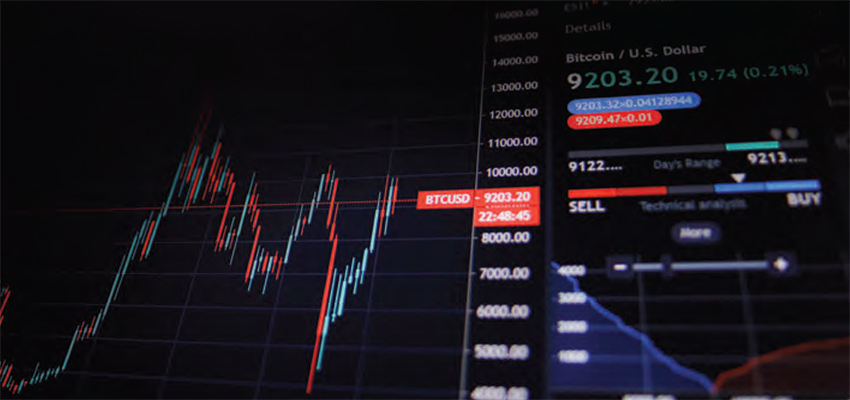Hindenburg and After...

The Hindenburg report created much havoc in the stock market, especially with the Adani Group shares that it targeted. While Hindenburg’s intention was primarily profit through short-selling, it brought to surface many a question on the group’s stock market dealings. A SEBI inquiry is on, as well as one by a special committee set up under the directions of the Supreme Court. The jury is still out....
In the last two months, most drawing room discussions have centred around the Hindenburg report and its terrible impact on the Adani Group shares. The capital market and the role of SEBI have been under focus. This hot topic has also affected the smooth functioning of our Parliament. There has been ruckus in both the houses of Parliament and adjournments. Opposition parties have demanded a Joint Parliamentary Committee to enquire about the issue and even gave a political colour to the capital market problem. Middle class investors who had invested in the Adani Group shares suffered badly, and Gautam Adani himself has slipped down from the position of the richest person in the world now to the 34th position in the global rich list. About Rs 10 lakh crores have evaporated due to the melting of Adani group shares.
He talks to Corporate Citizen on his mindful journey...
What is Hindenburg?
Hindenburg Research is a five employee strong research entity in the financial field in the US. Their work is to launch investigations on companies globally and then to act as short-sellers of the shares of the companies investigated. Short sellers make money on the fall of the value of shares which they have short sold. This is a terrible profession, as they profit on the loss of investors, which may be mainly middle-class investors.
A short seller does not own the shares in which he does the short selling. He borrows such shares and then anticipates a fall in their value. Once the value has fallen, he purchases such shares from the market and returns back his borrowings. The difference in the value when shares were taken and then returned is the profit of the short seller. Hindenburg and his associates might have minted money on the Adani Group shares, while the investors lost money hugely.
LIC and lender banks...
One big investor in this group of shares has been LIC, and their investment has been of about Rs 30,000 crores. However, LIC has clarified that they have not suffered a loss on the market value of their holdings even after the steep fall of Adani shares. But there will be a long list of investors who have lost money and this list is still to surface out.
Banks can also be losers as some lender banks keep pledged shares as security against the loans given. With the fall of the value of shares, the value of the security falls, and the banks may lose money in case of default. Lender banks in India have so far not spoken of any potential loss as they also hold securities other than of the pledged shares of the group. The Reserve Bank of India (RBI) has instructed all banks to promptly enquire before coming to any conclusion. The matter has gone to the Supreme Court and the apex court has constituted a committee to enquire over the matter created by Hindenburg and propose safety measures for the future.
What role SEBI?

SEBI is the regulator of the capital market, and the buck stops at it. In case of any failure on its part, SEBI will be held responsible. The Supreme Court has also directed SEBI to continue making enquiries and submit the status report within two months. With such an important role played by SEBI it makes it imperative for us to learn more about this institution and its workings.
SEBI (The Securities and Exchange Board of India) is an autonomous body under the Ministry of Finance. It was first constituted on 12th April 1988 as an executive body and then given statutory powers on 30th January 1992 through the legislation of the SEBI Act 1992. The Controller of Capital Issues used to be the regulatory authority before SEBI coming into the picture. SEBI is managed by its members which consist of the following:
- Chairman, nominated by the Union Government
- Two members from the Union Finance Ministry
- One member from the Reserve Bank of India
- The remaining members, five in number, nominated by the Govt. of India, which include three whole time members.
Functions and responsibilities of SEBI:
The Preamble of SEBI describes the basic functions: “...to protect the interest of investors in securities and to promote the development and to regulate the securities market, and for matters connected there with or incidental there to”.
SEBI has to be responsive to the needs of the three groups which virtually constitute the market –
- Issuers of securities
- Investors
- Market intermediaries
SEBI can be categorised by its functions under three bodies: Quasi-legislative; quasi- judicial; quasi-executive. It drafts regulations in its legislative capacity. It conducts investigation and enforcement actions in its executive capacity; and it passes rulings and orders in its judicial capacity. These functions make SEBI a powerful entity but to give accountability, there is an appellate body, the Securities Appellate Tribunal. A second appeal lies directly with the Supreme Court.
SEBI’s powers
SEBI has been vested with the following powers to discharge its functions.
- To approve by-laws of the securities exchanges
- To require the securities exchanges to amend their by-laws
- To inspect the books of accounts and call for periodical returns from the securities exchanges
- To inspect the book of accounts of financial intermediaries
- To compel certain companies to list their shares
- Registration of brokers and sub-brokers
SEBI committees
- Technical Advisory Committee
- Committee for review of structure of infrastructure institutions
- Committee for SEBI investor protection and education fund
- Takeover Regulations Advisory Committee
- Primary Market Advisory Committee
- Secondary Market Advisory Committee
- Mutual Fund Advisory Committee
- Corporate Bonds and Securitisation Advisory Committee
Hindenburg Research is a five employee strong research firm in the financial field in the US. Their work is to launch investigations on companies globally and then to act as short-sellers of the shares of the companies investigated. Short sellers make money on the fall of the value of shares which they have short-sold
SEBI achievements
SEBI has enjoyed success as a regulator by pushing systemic reforms aggressively and successively. SEBI is credited for quick movement towards making the markets electronic and paperless. Settlements are done in two days after trade under regulations as required under law. SEBI did away with physical share certificates that were prone to postal delays, thefts and malpractices, apart from making the settlement process slow and cumbersome by passing the Depositories ACT, 1996. SEBI has also been instrumental in taking quick and effective steps in the light of the global meltdown and the Satyam scam in 2011. It increased the extent and quantity of disclosures to be made by Indian corporate promoters. In the light of the global meltdown, it liberalised the takeover code to facilitate investments by removing regulatory structures. SEBI has also increased the application limit for retail investors to Rs 2,00,000 from RS 1,00,000.
SEBI has also faced controversies when SC admitted some PILs. There was also an incident when a permanent member of SEBI filed a complaint before the Prime Minister regarding the inside workings of SEBI, and also regarding its favouritism towards some big corporate houses. But as of date, its achievements are much more than its controversies.
What will SEBI say?
In the present context of the Adani group shares, SEBI is in the process of investigating and we must trust it. Investors have not panicked after the Adani fiasco and the share market is still very going strong. Also, many of the Adani group companies have since shown improvement in share values. SEBI has an established reputation globally, and Indian investors have kept the Indian capital market ruling high even during the COVID pandemic days, when even global markets were doing badly.
A clear picture will emerge in two months, the time given by the Supreme Court to SEBI to place the status report before it. Side by side, the committee constituted by SC will also make its own inquiry. It is quite encouraging to note that so far none of the lenders have said that their lendings to the group have turned NPAs. There is no noise either from high net worth investors. The Adani group appears to be very sure that the high value of their shares will return and investors who have retained their shares will not lose.
The Adani group fiasco cannot be equated with the Harshad Mehta or the Ketan Parekh scam or even with the Satyam share scam. Adani share valuation may be high, and the same has fallen due to the allegations of the US based short-seller. Share markets are prone to such rise and fall. If possible, Hindenburg should be investigated by the US government and for that, a diplomatic request should be made by India.